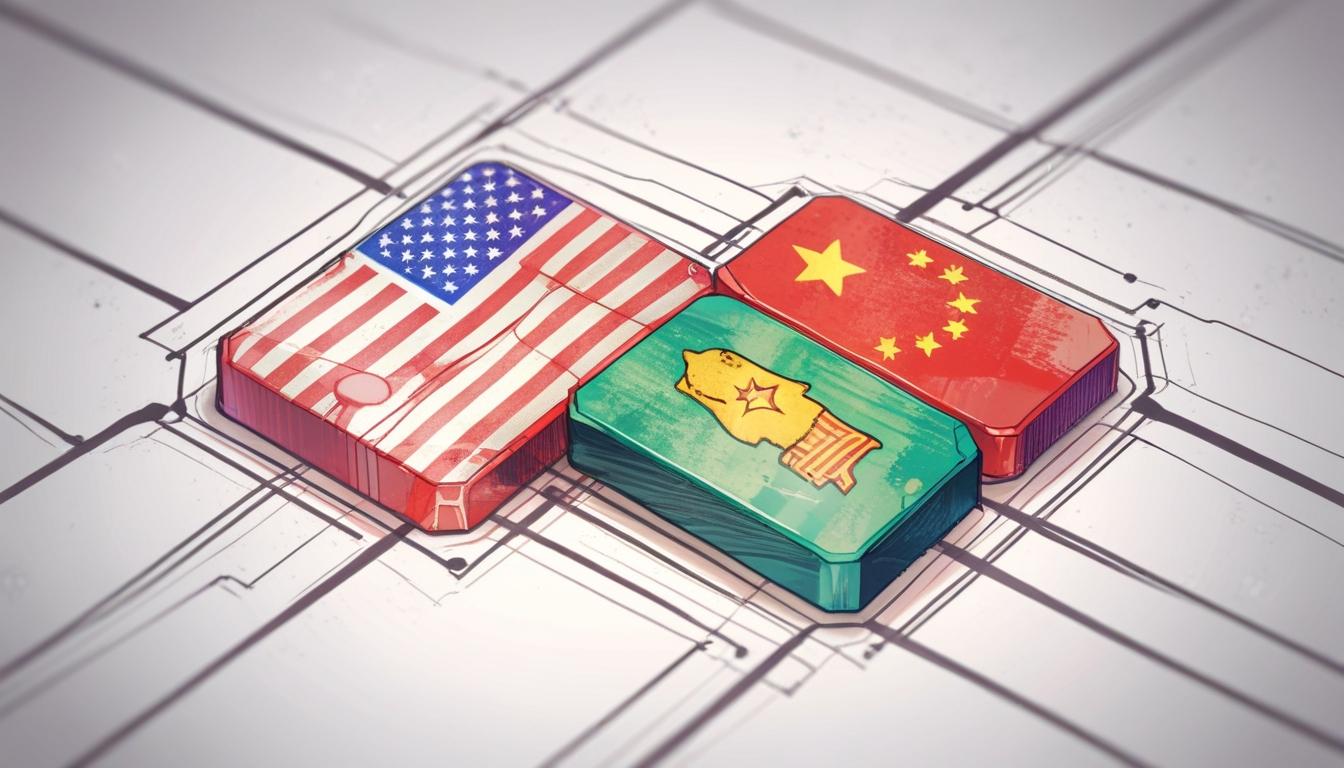In a significant policy shift, President Donald Trump is poised to revoke crucial export restrictions on AI technology that were implemented during the final days of the Biden administration. These restrictions aimed to prevent advanced semiconductor technologies from reaching adversarial nations, particularly China and Russia. Critics from both governmental and corporate spheres, including prominent tech leaders, had lambasted the measures as overly cumbersome and detrimental to American companies.
Introduced under the Framework for Artificial Intelligence Diffusion, the regulations sought to enforce a three-tiered licensing system that would have complicated the export of AI chips produced by companies like Nvidia and AMD, while also impacting international business prospects for U.S. semiconductor manufacturers. As Senator Ted Cruz, a vocal opponent of the original curbs, noted during a recent Senate hearing, the framework risked compelling nations in the mid-tier group—such as countries in Eastern Europe—to seek AI infrastructure from Chinese companies, undermining American technological dominance.
Cruz has indicated plans to propose a new bill establishing a regulatory "sandbox" for AI development, suggesting that the U.S. should adopt an approach reminiscent of the early days of the internet. This reflects a broader sentiment among industry leaders, who argue that the U.S. must act decisively to maintain its edge over China, especially following the emergence of competitive technologies from Chinese firms like DeepSeek, which claims to offer advanced AI capabilities at significantly lower prices.
The growing consensus in the tech community is that deregulating the AI sector will stimulate innovation while ensuring national security—a complex balancing act that leaders like Microsoft’s Brad Smith have articulated. He emphasised the necessity for the U.S. to enhance its infrastructure, highlighting the need for increased investments in data centres and energy systems to support the burgeoning AI landscape.
Amidst this backdrop of administrative change, deepening concerns about the ethical implications of AI technology are also surfacing. Nonprofit organisations, such as Common Sense Media, have raised alarms about the potential risks AI applications pose to young users, particularly after a tragic incident involving a 14-year-old boy and a chatbot. OpenAI’s CEO, Sam Altman, has expressed a commitment to addressing these issues collaboratively, recognising the urgency of safeguarding vulnerable populations while promoting technological advancement.
Furthermore, discussions surrounding tariffs on semiconductors could reshape the landscape of US-China relations in the tech sector. Recent announcements indicate that while certain electronics may eventually be exempt from tariffs, a comprehensive review is underway that could profoundly affect the semiconductor supply chain.
As the situation evolves, Nvidia is reportedly adapting its product line by developing a less powerful version of its H20 AI chip specifically for the Chinese market, reflecting its strategic pivot in the face of stringent U.S. export controls. This move highlights the ongoing tensions and complexities within the semiconductor industry, where companies must navigate a rapidly changing regulatory framework while catering to a demanding international market.
The stakes are high; as industry leaders contend, the outcome of this regulatory landscape will significantly influence whether the U.S. or China emerges as the dominant player in the global AI race. The future of innovation and international market leadership hinges on striking the right balance between promoting technological growth and safeguarding national security.
As this narrative unfolds, bipartisan legislative efforts are emerging to bolster U.S. AI capabilities. Recent introductions of bills, such as the "Chip Security Act," aim to enforce measures like location-tracking on export-controlled AI chips to prevent potential military applications by foreign actors, particularly China. These developments signal an era of strategic scrutiny and proactive governance intended to safeguard U.S. interests in a highly competitive technological environment.
The intersection of policy, innovation, and ethical considerations constitutes a pivotal moment in the ongoing dialogue about AI's role in society and the global economy. As thoughts converge on how best to implement these changes, both the U.S. and China stand at a crossroads, each vying for supremacy in the technological arena.
Reference Map
Source: Noah Wire Services
